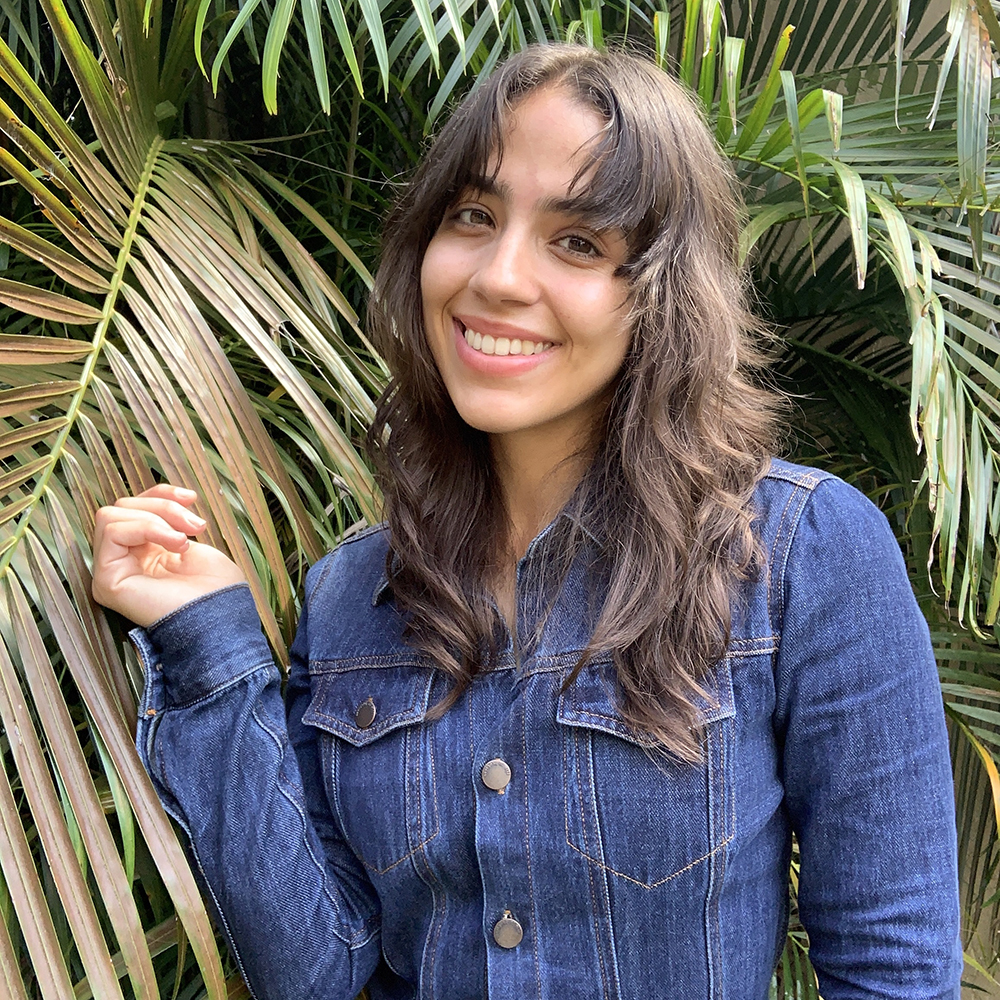ACE INTERVIEW: Maureo on Queerness in Climate Activism
Raquel Martinez
|December 19, 2021
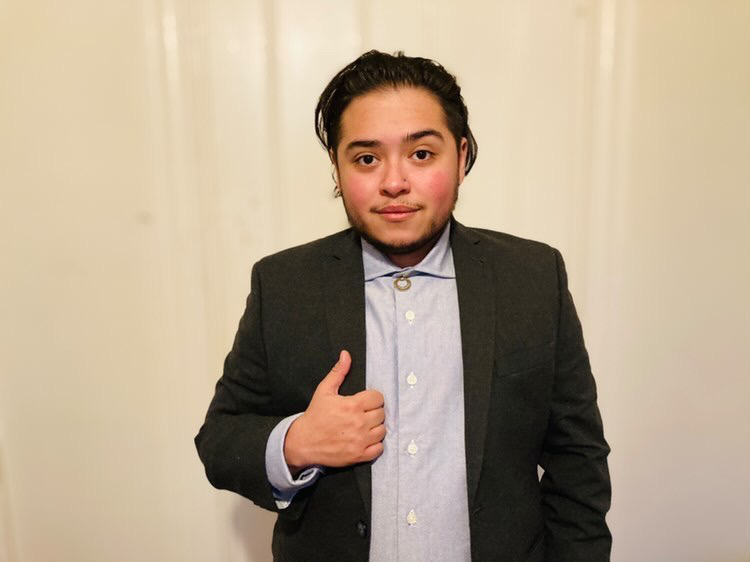
Maureo Fernandez y Mora (he/they) is a youth activist based in Northampton, MA and Associate State Director of Clean Water Action Massachusetts.
Raquel Martinez (RM): When did you first learn about the climate crisis? What was your immediate reaction?
Maureo Fernandez y Mora (MFM): You know, it’s funny – I didn’t remember this until recently, but the first time I learned about climate change, I must have been in second grade or somewhere around there. We learned about it in a gifted program, and the only reason I mention is that to highlight the question: “why weren’t all kids getting access to this information? Especially in a school where most kids were Latinx but a large number of the gifted kids were white.” Anyway, we learned about how the ozone layer was being destroyed by CFCs in hairspray and how it was gonna kill the polar bears someday. I remember trying to get a couple of my friends to stay inside during recess and read library books so we could save the polar bears haha. I guess I was always an intense kid.
But other than that, I wasn’t someone who was a die-hard climate advocate. It wasn’t until I started to untangle how connected environmental issues were to geographical areas that it really drove my passion. Issues like racial justice, economic justice, mass incarceration made me say, “Oh sh*t. This is like a core issue. I need to be working on this.”
RM: How did you first get involved in the climate movement?
MFM: Like I mentioned, growing up I was a lot more focused on things that impacted my life more tangibly: racism, the impact of class privilege on what your life ends up being like, homophobia, and sexism. I happened to get involved in a local climate protest where I spoke publicly against the repeal of a state-wide carbon cap when I was sixteen. It wasn’t my core passion or anything, but I was really into the protest side of organizing at that point in my life. The Executive Director of New Energy Economy, a local non-profit in New Mexico followed up with me and asked if I would like to speak in other settings. That led to an internship which led to me working with the organization throughout high school and most of college on my breaks.
For me, it was like the more I learned about environmental issues, the more I realized we aren’t going to solve other systemic injustices if we don’t ask ourselves, “What environments are we being born in? Who is impacted by the way we consume resources? What’s the impact and legacy of these factors?” And the more I learn, the more I come across issues that make me say, “Yeah – we’ve gotta fix that first.” So that’s why I’m still doing this work.
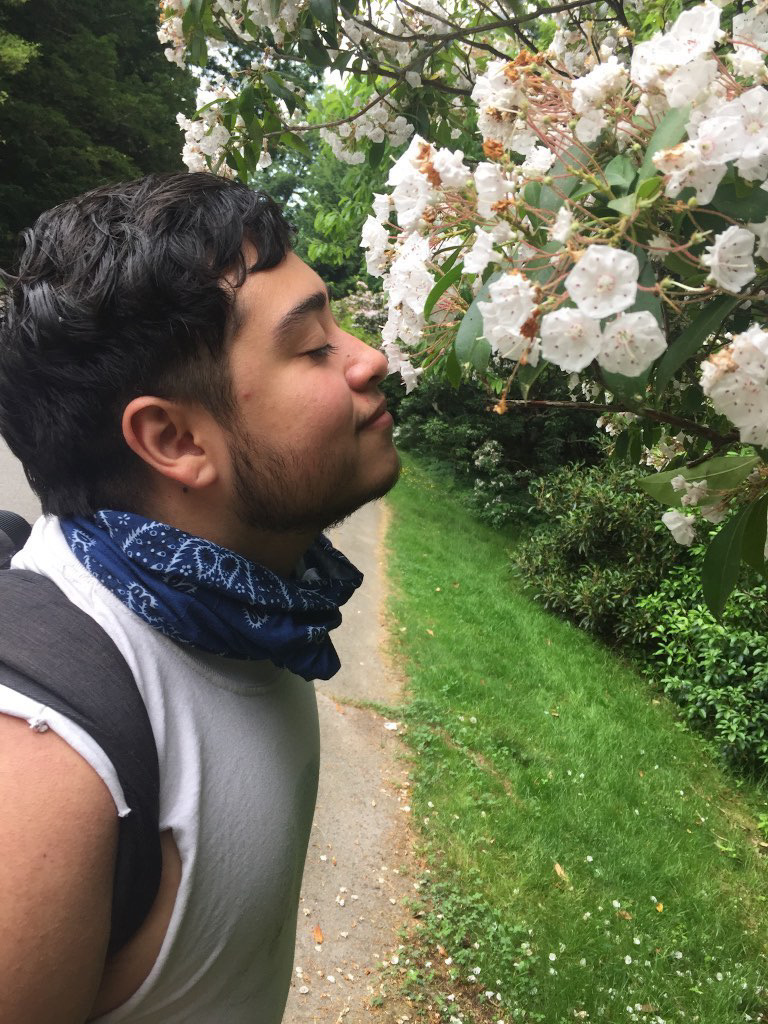
RM: How does your identity inform your activism?
MFM: Completely and all the time. People of color — despite statistically being more concerned about climate change and the most philanthropic — are still depressingly under-represented in the traditional white climate movement that also, unfortunately, holds the most institutional resources and therefore the most capacity and social capital. So when I walk into a room, I’m often one of very few, or at times the only, people of color at the table. And then you tack on the trans aspect and obviously, there are going to be some challenging moments interpersonally…
But my identities are also some of my greatest strengths. To a larger extent, I don’t ever forget to think about things systemically and intersectionally. My life is ruled by systems and my identity is inherently intersectional. I can’t just be brown, just be trans, just be someone raised with greater financial and educational privilege – I am all of those things at once all the time. And I think that manifests itself in my work in interesting and beautiful ways. One of my jobs during college was as a door-to-door field canvasser for the same organization that I work at today. I was generally good at connecting with people from a variety of backgrounds. I think that’s because of all of my different identities.
It’s called “code-switching” technically, but for me, I just see it as switching between equally authentic parts of myself. I’m able to switch between technical language and language that resonates with community members who aren’t steeped in the environmental world and hopefully provide the same kind of context and choice that communities need and deserve when it comes to things like organizing for clean drinking water, fighting against toxic chemicals marketed towards low-income people and hourly wage workers, and fighting to pass climate policies that will actually benefit the groups of people who have the most to lose from climate change.
I learned from my communities that education, access, money – none of that makes you better than anyone else. It just makes you lucky and it comes with a responsibility to share the information you’ve been given access to by others. Being queer and trans, I’ve learned how important compassion and kindness are and how much more powerful we are when we’re united and organized rather than isolated and scared. I think the climate crisis often leads people to people being alone in their room, doom scrolling, overwhelmed about the state of the world. I know that the solution for me has been to push through it, get out there, and be an active participant in my own liberation instead of giving in to that fear and isolation. I think that translates pretty well into environmental work, too.
RM: When did you decide to start using social media as a tool for your advocacy and what led you to that decision?
MFM: Honestly, I wouldn’t say it’s something I’m using to the fullness of its potential yet. I’m always sort of one foot in one foot out with social media. I’m kind of secretly a grumpy dad type even though I’m young. I’m not someone who puts out a lot of content or who really “gets” the algorithms of each platform. So when it comes to social media, there are things I love about it and things that I think it can detract from. But I’ve realized more and more that for a lot of people social media comes down to access. If you have access to the internet, you can be learning and engaging in dialogue with people from all over the world who have a wide variety of opinions, expertise, and experiences. There’s no way that’s not valuable, right? And social media is fantastic for changing public knowledge and public consciousness. It sort of breeds this desire to be “in on it”- whatever “it” is. So I know that for me, when I see a meme or a screenshot of a tweet referencing a social justice thing I don’t know much — or anything — about, my first reaction is, “I need to know about this”. I want to be able to participate in the dialogue. That’s powerful stuff and something that social media seems to be particularly good at facilitating.
Then there’s time: No one has time. One thing that was really solidified for me when I was canvassing is that in general, most people actually do have a lot of opinions and feelings about environmental issues. What they don’t have, or at least don’t think they have, is the time to do anything with those thoughts and feelings. It’s sort of the classic organizing problem: If everyone who had an opinion about something actually did something about it, we’d live in a completely different world. But that’s not the reality, and so the people who are doing something about it need to constantly be working to get others to make that same leap. That’s how movements grow and win. Social media offers us the opportunity to create strong messages and calls to action and then offers the flexibility to engage on our own time and to come across things that might seem overwhelming in other settings. For example — and I’ll use myself as an example because I’m just as guilty as anyone else — Do I feel like I have an hour to go to a local city council meeting or attend a rally? Often I don’t. Do I have three hours to doom scroll Instagram and learn/ get worked up about all kinds of niche interests and important movements happening? It would appear that I do – pretty much every night.
So anyway, I guess the reason I’m deciding to invest more in social media as a tool, and encouraging our office to invest more in it as well, is because one of the core principles of organizing is meeting people where they’re at. Literally. If people are meeting at the park, you go to the park. If no one is coming out to rallies and they’re staying home but you know this is really important and affects those people, you start knocking on doors. And right now, there are a bunch of people on the internet who are signaling they care about the environment. So, we meet them on the internet.
But one question that keeps me up at night is: How do we take it further? How do we convince people that if you have three hours to engage in internet activism, then you have one hour to find out how you can move beyond that and go deeper?
RM: How do you think influencer culture has contributed to the climate movement?
MFM: I’m not sure what you define as “influencer” and as I said, I’m not what I could consider a huge social media person, so most of the people who count as influencers for me are “angry, leftist, meme dealers” lol. But, I know that for humans, it’s crucial that you know that someone you trust, feel connected to, or admire in some way cares about something that you’re considering believing and investing time into.
Influencers are so damn cool. That’s the point, right? So, I think that influencers are just an extension of a principle that’s always been used in organizing: if you want to change something, you need to find strength in numbers. Almost always, what systems of power leverage over us are resources, stages, and capacity.
But we have numbers on our side and there’s no individual or corporation powerful enough to ignore or suppress every single person speaking up at once, in unison. So, that’s always our final goal: people power. Big numbers of people who are all saying the same thing and making the same demands. And you do that by making a social justice issue a part of the culture. Influencers shape culture, so we need them to believe that culture needs to include a balanced and sustainable interconnection between people, the earth, and all of the other creatures who live on it.
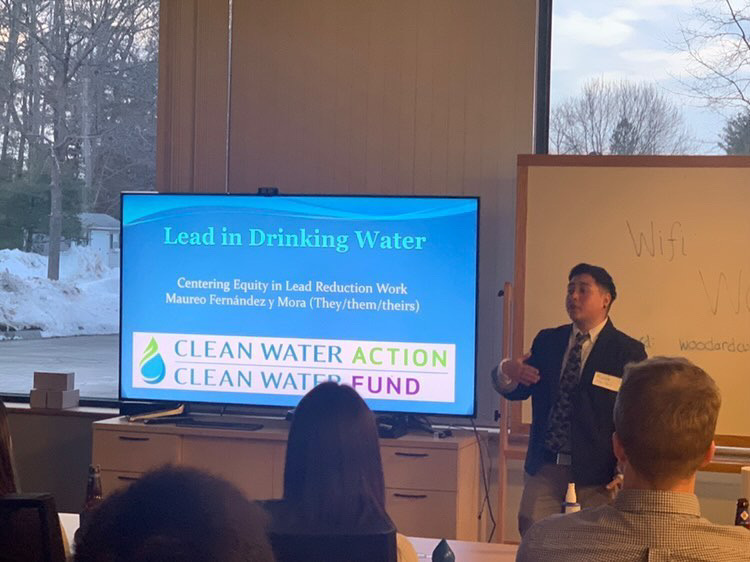
RM: What steps could individuals take towards creating and promoting intersectionality within the climate space?
MFM: Some of it is just fundamental to being a good human, so it’s more probably better to just say it as simply as possible: listen, be kind, treat others the way you would want to be treated, lead more with your heart and less with your ego, assume that you will be wrong at some point and be willing to apologize, assume that you will be right at some point and be willing to fight for your truth.
And then my second thought track sounds a bit more utilitarian but in my experience, it leads to more intersectionality and inclusivity on a personal and larger level: Understand the interconnection between you and another person/issue, know your target, and then take some time to figure out how much of your own time, resources, and energy are being spent on that target vs. interpersonal conflict. So for example:
The same colonial powers that normalized the practice of aggressive, unsustainable resource extraction are also the same powers that have committed genocide against Indigenous populations all over the world in order to capture the resources that Indigenous peoples have always stewarded thoughtfully and responsibly. These are the same powers that have relied on slavery, including modern-day incarceration, to generate product and labor using those resources. These are the same powers that invented race and racism as a way to justify slavery and extraction. These are the same powers that imposed strict gender categories and stigmatized homosexuality and gender “deviance” to create the social control necessary to keep those systems in place. All of this has created a world where the people who work the hardest — Indigenous people, Black people, people of color, immigrants, the working class, and working poor — and give (and I’m using the word “give” loosely here because much of what we have is stolen) the most see the least benefit in terms of quality of life.
In order to change that current reality, we — BIPOC, LGBTQ people, working people, women, and of course anyone who is interested in not bringing about mass extinction — need to be focused on those core systemic powers and those who have the power to change them, even if we don’t understand everything about the people we’re standing next to. So if you find yourself talking to someone who uses different pronouns, has different sexuality, is of a different race, class, or any other lived experience, maybe try to find the beauty and power in that. At the very least, please don’t let that be an obstacle to finding common ground and collective power. And I have to say, in some ways that must go both ways.
I would never, and have never, accepted abuse or discrimination at any table I’m a part of and I speak up whenever I feel that’s happening. When I encounter someone who I can tell is trying, even if they don’t fully “get it” when it comes to LGBTQ issues, I try to work to find the common ground. It’s not always comfortable for me, and probably not for them either. But when I remind myself and others that this is about breathing clean air and drinking safe water, I often find that we win big systemic victories even if we don’t understand each other on a personal level yet. So, always know your true target and chances are it’s not a random person you meet at a rally or on the internet, even if some of their views are upsetting or messed up. I can’t answer the question of “can I work with this person?” for anyone but myself, but my life and work has benefitted from asking that question earnestly and investing in my own growth and healing so that I can keep opening myself up to working with more people who I may or may not agree with all the time.
People want to help and hearing a video about how it’s too late to stop the climate crisis is extremely discouraging. Giving people hope is what works best. We must inspire and influence positive change.
RM: What are some tips you could provide young people who are looking to follow a similar path in activism as you have?
MFM: Just show up and don’t stop showing up. One of the most beautiful things about organizing, good organizing at least, is that it is designed to live forever. By that I mean that the best organizers know it’s not just about winning now, it’s about bringing more people into the movement so that even if we lose today, even if we lose tomorrow, we will inevitably win because the movement will keep getting exponentially bigger. Trust that there are people who have been getting a place ready for you before you even knew you wanted one. You’ve just got to find those groups and those people. We’re out there. Also, not every moment is a big, glamorous activist moment, or an electrifying protest. That stuff is there if you stick around, and it’s important, but a lot of the time it’s actually more boring emails, google docs, meetings, etc.- all of the behind-the-scenes work is what makes the big wins possible.
So, keep showing up and if you do, I promise amazing things will happen. I really do believe that we are all part of the solution. Whether or not your role ends up being on the frontlines of the protest, a badass community member who shows up to your local city council meetings, a really loyal volunteer who signs petitions and shows up when asked, or someone who makes the time to take a couple of online actions a week – we need you!
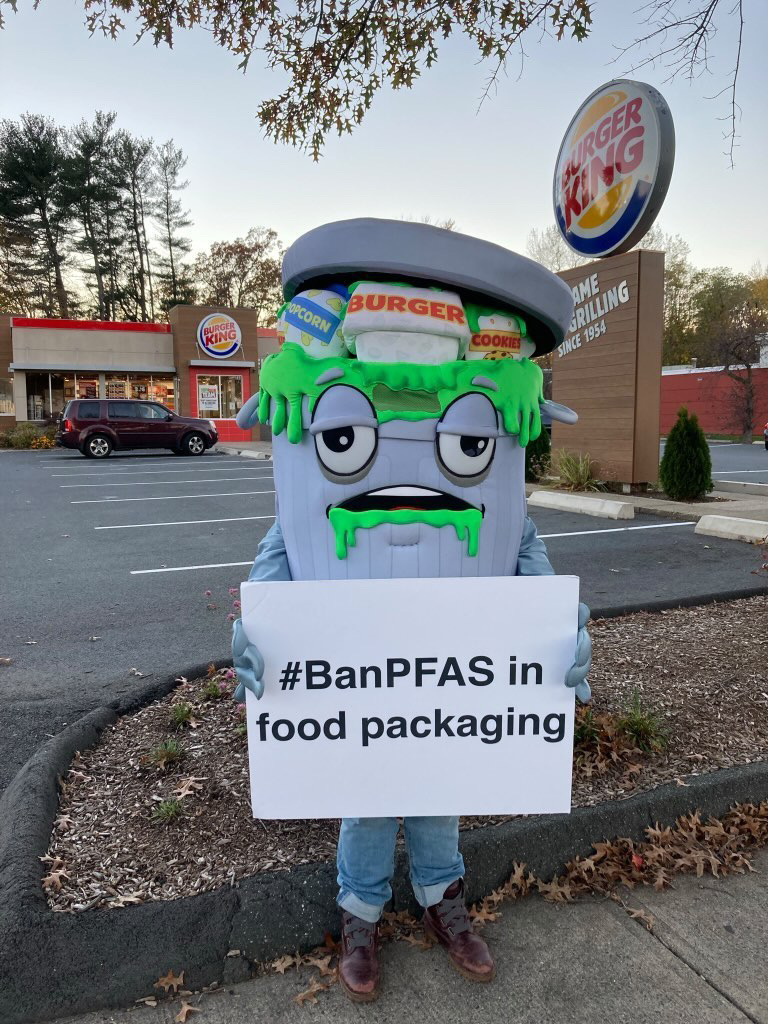
RM: Who are some of your favorite queer climate activists and where can we find them?
MFM: Honestly, I haven’t ever really invested time in queer affinity groups in the climate world, which is not to say they aren’t important! I spend a lot more of my free time networking with people of color because that’s a part of my identity I can ever not have visible. I don’t have anyone that is so famous I’d feel comfortable naming them without their permission.
I will say that I have learned the most about both gender/ sexuality and environmental stewardship from Indigenous communities who have fought so hard to retain non-colonial wisdom about both subjects. People should be following the work of people like Winona LaDuke, Jasilyn Charger, Xiuhtezcatl Martinez, Naelyn Pike, Autumn Peltier, water protectors on the frontlines fighting against pipelines, and Robin Kimmerer in no particular order.
RM: How can individuals support your work?
MFM: Well, since we’re talking about social media, follow our social media! We spend a lot of time doing not very glamorous but important work and don’t always have as much time as we’d like to create a bunch of new social media content all the time. But just because it isn’t shiny doesn’t mean it isn’t important and we’re working on growing our social media presence. So, you can follow us on Facebook (Clean Water Action/ Clean Water Action Massachusetts), Twitter (@CleanH2OMA/ @CleanH2oaction), and Instagram (Clean Water Action/ Clean Water Action MA).
Ideally, we’re also mobilizing people to move beyond the “likes and shares”, although if you take a look at our social media pages, you’ll see we definitely shouldn’t be turning our noses up at more likes and shares… But still – make it a practice to do a little more this month than you did the last. If you liked something but didn’t share it, share it! If you shared an action but didn’t click the petition link (guilty), click the petition link. Once you’re taking individual actions, bring at least one friend along too.
One cool thing that we’re trying to get off the ground in Massachusetts (for those who live here) is our monthly “Action Hours”. The idea is that if you’re willing to spend just one hour a month by showing up to our online action hours, we’ll plug you into important campaigns at a time that is critical to their success. And it’s fun, too – we’ve got games, info, and easy actions you can take from home that further your knowledge not just about a problem, but also the solutions and strategies it’ll take to solve it. Every month is different so you can learn about climate change legislation, energy choice, drinking water, and toxic chemicals. We always advertise them on social media so sign up and hang out with me once a month on Zoom! We also always need money, but who doesn’t?
RM: Let us know if there’s anything else you’d like to share!
MFM: Climate anxiety is so real. I know it’s scary and overwhelming and sometimes it’s easier to make jokes and share memes about how the world is “ending”, but this isn’t over. We have time to change what climate change means for us as a species and for other species as well. And we definitely have time to create protections and resources for the people who are most vulnerable to climate disruption – which includes queer and trans people since we’re more likely to be cut off from financial resources and discriminated against in jobs. We still have time and you can help. We can’t just sit and watch the world burn: we need to demand that ourselves and others stop burning it.
RM: Thank you for joining us!
All photos courtesy of Maureo Fernandez y Mora.
Answers may have been edited for length.
Want to read more? Check out the ACE Blog!
Join our Youth Action Network
More Blog Posts

Unnatural, Not Unprecedented
For two weeks, residents of Southern California endured a waking nightmare. Parents raced against time – hurrying down the driveway …
Read MoreCrafting a Vision for the Future: My Experience at LCOY USA 2024
Dry and sunny Tempe, Arizona where temperatures have been over 100 F for 113 consecutive days, delegates gathered to attend …
Read More
7 Ways to Weatherproof Your Home on the Cheap (+1 Not-So-Cheap)
As colder weather sets in, understanding how to weatherproof your home is key to maintaining warmth and reducing energy costs. …
Read More
